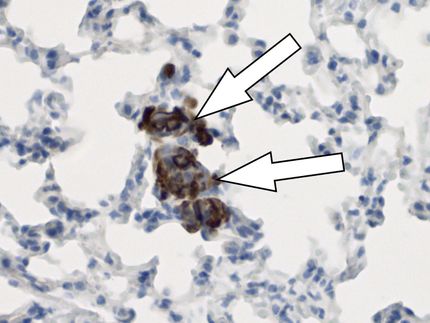Moffitt Cancer Center researchers validate molecular signature to predict radiation therapy benefit
Technology opens door to biologically guided radiation therapy
Advertisement
Researchers at Moffitt Cancer Center, working with colleagues in Sweden, the Netherlands and Puerto Rico, have validated a radiosensitivity molecular signature that can lead to better radiation therapy decisions for treating patients with breast cancer. The results appeared in Clinical Cancer Research.
The study examined patients with breast cancer who had been treated with radiation therapy and demonstrated that a radiosensitivity molecular signature (RSI) could predict clinical outcomes exclusively in patients treated with radiation therapy. The radiosensitivity molecular signature (RSI) used by the research team had previously been tested and validated for rectal, esophageal, and head and neck cancers. The technology, which identifies radiosensitivity and radioresistance, opens the door to biologically guided radiation therapy and offers the potential for better outcomes.
"Developing a radiosensitivity predictive assay has been a goal of radiation biology for decades," said Javier F. Torres-Roca, M.D., member of the Experimental Therapeutics program at Moffitt. "This effort supports the emphasis on personalized medicine, where the goal is to use molecular signatures to guide therapeutic decisions."
According to Torres-Roca, approximately 60 percent of all cancer patients receive radiation therapy during their treatment. Yet until now, no molecular diagnostic or biomarker of radiosensitivity had been developed to predict its benefit.
The radiosensitivity molecular signature was developed based on gene expression for 10 specific genes and a linear regression algorithm. RSI was developed in 48 cancer cell lines using a systems-biology strategy focused on identifying biomarkers for cellular radiosensitivity.
This study validated RSI's benefit when researchers found that radiosensitive breast cancer patients had an improved five-year, relapse-free survival when compared to radioresistant patients.
"This study validated RSI in 503 patients in two independent data sets," Torres-Roca said. "We have validated RSI in five independent cohorts totaling 621 patients, so this latest validation study, to the best of our knowledge, makes this technology the most extensively validated molecular signature in radiation oncology."
The successful transition from applying the technology to cell lines to patient application also suggests that the biological basis of cellular radiosensitivity is conserved between cell lines and patients and also across epithelial tumors, Torres-Roca said.




























































